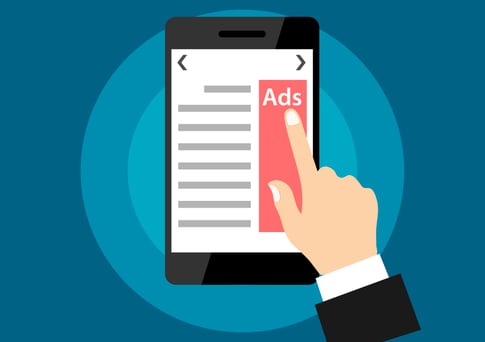
Making Google Ads Easy - Final URLs
Are you looking to get started with Google Ads but feeling a bit overwhelmed? You're not alone! Many marketers struggle to understand the complexities of setting up effective campaigns and tracking their performance. But don't worry - making Google Ads easy is easier than it looks.
With the right information, you can set up your ads quickly and start seeing results almost immediately. In this blog post, we'll take a look at one of the most important aspects of creating successful campaigns: Final URLs. We'll explain what they are, how they work, and why they're essential for any digital marketing campaign. So let's get started!
Table of Contents
- Final URLs and how they work
- The benefits of using Final URLs for digital marketing campaigns
- Steps to setting up a successful campaign with Final URLs
- Tips on optimizing your ads with Final URLs
- Examples of successful campaigns that used Final URLs
- Key points about using Final URL in Google Ads campaigns
- Final Thoughts
Final URLs and how they work
Final URLs are the web addresses that potential customers are directed to when they click on a Google ad. They are designed to be the last step in the user journey before they take a specific action, such as making a purchase or filling out a form. Final URLs provide a way for marketers to track and optimize the performance of their campaigns, by allowing them to see exactly where their clicks are coming from and what the user is doing once they arrive at the site.
Final URLs work by directing users to a specific landing page on a business's website. This landing page is designed to be optimized for the particular product or service being advertised, with a clear call to action and easy navigation. For example, if a business is advertising a promotion for a specific product, the final URL will likely lead to a landing page that features that product, with clear instructions on how to take advantage of the promotion.
In addition to tracking and optimization, Final URLs also play a crucial role in improving the user experience. By directing users to a specific landing page that is optimized for the ad they clicked on, businesses can ensure that users get the information they need quickly and easily. This can be especially important for mobile users, who are often looking for quick answers or actions on the go.
Overall, Final URLs are essential for any successful Google Ads campaign. By optimizing for specific products or services and tracking user behavior, businesses can maximize their returns on investment and provide a better experience for potential customers. When creating your Final URLs, it's important to keep in mind the needs of your target audience and the specific goals of your campaign, in order to achieve the best results.

The benefits of using Final URLs for digital marketing campaigns
Final URLs are essential for any digital marketing campaign, and they offer numerous benefits to marketers who use them. One major benefit is increased relevancy for users. When you use Final URLs, you can create a more customized experience for your target audience, directing them to specific landing pages on your website that best match their search queries. This not only enhances their user experience but also improves engagement and conversion rates.
Another key advantage of using Final URLs is improved tracking and measurement capabilities. With Final URLs, you can easily track which ads are performing best, which landing pages are generating the most conversions, and which keywords are driving the most traffic. This valuable data allows you to adjust your campaigns accordingly, optimizing them for maximum performance and ROI.
Additionally, using Final URLs can improve your Quality Score, a critical factor in determining ad placement and cost-per-click (CPC). Quality Score is based on several factors, including click-through rate (CTR), relevance, and landing page experience. By creating targeted Final URLs that align with your ad and keyword strategy, you can improve your Quality Score and potentially reduce your CPC, resulting in lower costs and better positioning for your ads.
Finally, Final URLs can enhance your overall ad performance by improving your ad rank. Ad rank is calculated by multiplying your Quality Score by your bid amount. By improving your Quality Score with Final URLs, you can boost your ad rank and potentially surpass competing ads with higher bids.
Steps to setting up a successful campaign with Final URLs
To set up a successful campaign with Final URLs, there are several important steps to follow. Here's what you need to know:
Choose the Right Landing Page
The first step when setting up your Final URLs is to decide which page on your website or landing page you want to use for your ad. It's important to choose a page that's relevant to the ad, contains the necessary information, and gives users a clear call-to-action.
Create the Ad
Once you've chosen your landing page, it's time to create your ad. This includes choosing the ad type, writing the copy, and creating any images or videos you want to include. When creating your ad, make sure it's visually appealing, clearly conveys your message, and encourages users to click through to your landing page.
Set Up Tracking Parameters
Tracking the success of your ad is essential to understanding its impact and making improvements for future campaigns. To do this, you'll need to set up tracking parameters for your Final URL. This includes adding the relevant UTM parameters to the URL, such as campaign name, source, medium, and content.
Test and Refine
Once your ad is live, it's important to monitor its performance and make adjustments as needed. Use Google Ads' reporting tools to track your ad's key metrics, such as click-through rates and conversion rates, and use this information to optimize your campaign. This may involve adjusting your ad copy or targeting criteria, or experimenting with different landing pages.
Continuously Optimize
Optimizing your ad campaigns is an ongoing process. As you gather more data and insights, use them to refine your campaigns and improve their performance. Continuously monitoring and optimizing your campaigns will help you achieve better results and get the most out of your digital marketing efforts. Learn more about Google optimization and your Google optimization score here.

tips on optimizing your ads with Final URLs
Now that you understand what final URLs are, let's talk about how to optimize your ads using them. Here are some helpful tips:
Use relevant and specific final URLs
When creating an ad, make sure to use a final URL that is specific to the product or service being advertised. For example, if you're promoting a particular model of shoe, the final URL should lead directly to that model's product page, instead of a generic page for shoes in general. This makes it easier for users to find what they're looking for and increases the chances of a conversion.
Include keywords in your final URLs
Keywords are an important part of any digital marketing campaign, and including them in your final URLs can help increase visibility and improve ad relevance. For example, using the keyword "running shoes" in the final URL can help attract users who are specifically searching for that product.
Monitor and analyze performance
As with any aspect of digital marketing, it's important to constantly monitor and analyze your campaign's performance. By tracking metrics like click-through rates and conversion rates, you can identify which final URLs are most effective and make adjustments as needed.
Test different final URLs
A/B testing can be a valuable tool in optimizing your ads. Try using different final URLs and see which ones perform better. You may find that certain pages or product categories lead to higher conversion rates than others. Learn more about why you should be testing your Google Ads here.
Use tracking parameters
Tracking parameters allow you to track user behavior and measure the effectiveness of your ads more accurately. You can use parameters like "utm_source" and "utm_campaign" to see which ads are driving the most traffic and conversions.
Examples of successful campaigns that used Final URLs
Now that we understand what Final URLs are and how they work, let's take a look at some examples of successful campaigns that have utilized Final URLs to improve their performance.
One such example is from the popular fitness brand, Peloton. Peloton used Final URLs as part of their Google Ad campaign to promote their new line of workout equipment. By creating a highly targeted landing page that was optimized for their ad, Peloton was able to increase their click-through rate (CTR) by over 25%. This resulted in a significant increase in conversions and revenue, proving the power of using Final URLs for targeted campaigns.
Another example is from the online retailer, Zappos. Zappos used Final URLs to drive traffic to a landing page specifically designed for their summer shoe line. By using clear and concise messaging on their landing page and making it easy for customers to make a purchase, Zappos was able to increase their conversion rate by 40%.
Yet another successful campaign that used Final URLs was launched by the travel company, Expedia. Expedia utilized Final URLs to direct customers to a landing page that featured their latest vacation packages. By creating a landing page that was tailored to their specific ad campaign and utilizing strategic calls-to-action, Expedia was able to increase their CTR by 30% and drive more bookings.
These examples demonstrate the effectiveness of using Final URLs in your Google Ad campaigns. By creating highly targeted landing pages that are optimized for your specific ad, you can significantly increase your CTR, conversions, and revenue. So next time you're setting up a Google Ad campaign, remember the power of Final URLs and how they can help you achieve your marketing goals.
Key points about using Final URL in Google Ads campaigns
Final URLs are an essential component of any successful Google Ads campaign, allowing marketers to direct users to the precise landing pages they need. With a Final URL, you can track ad performance with greater precision, measure clicks, and conversions more accurately.
Moreover, setting up a campaign with a Final URL is easy and straightforward, and it can help you reduce bounce rates, improve user experience, and drive more traffic to your site. To use Final URLs effectively, you need to ensure that they match the keywords and ad text in your campaign, as this will increase the relevance score of your ads and boost your Quality Score.
Additionally, you can optimize your Final URLs by using relevant keywords, creating compelling content, and optimizing your landing page's loading speed. Successful campaigns that have leveraged Final URLs include those that cater to niche audiences, seasonal promotions, and retargeting efforts. In summary, Final URLs are a critical tool for Google Ads marketers, providing better tracking, more accurate measurement, and higher ROI.

Final Thoughts
Overall, Final URLs are an invaluable tool for Google Ads marketers. With the right setup and optimization techniques, you can leverage them to create powerful campaigns that drive more traffic and conversions.
Ready to learn more? Check out our two previous two blogs in our series “Making Google Ads Easy”
By understanding how they work and following our tips on setting up successful campaigns with Final URLs, you'll be able to take your digital marketing strategy to new heights in no time! So what are you waiting for? Get started today - start creating effective ads with Final URLs now!
Are you ready to take your PPC advertising to the next level? Look no further than Two Trees PPC - our expert team can help you create compelling campaigns that drive results. With our advanced optimization techniques and data-driven approach, we'll help you maximize your ROI and achieve your business goals. And with the power of Final URLs, we'll ensure that your ads are not just well-targeted, but also lead to high-quality landing pages that convert visitors into customers.
Don't settle for mediocre campaigns that drain your budget without delivering results. Work with Two Trees PPC and experience the difference that expert, data-driven optimization can make. Contact us today to learn more and start your journey towards PPC success!

